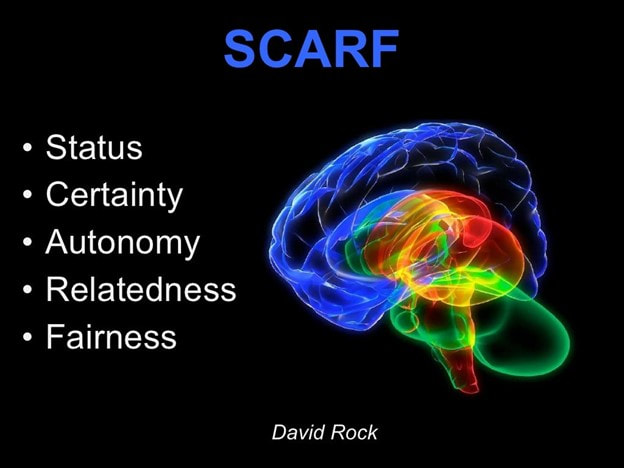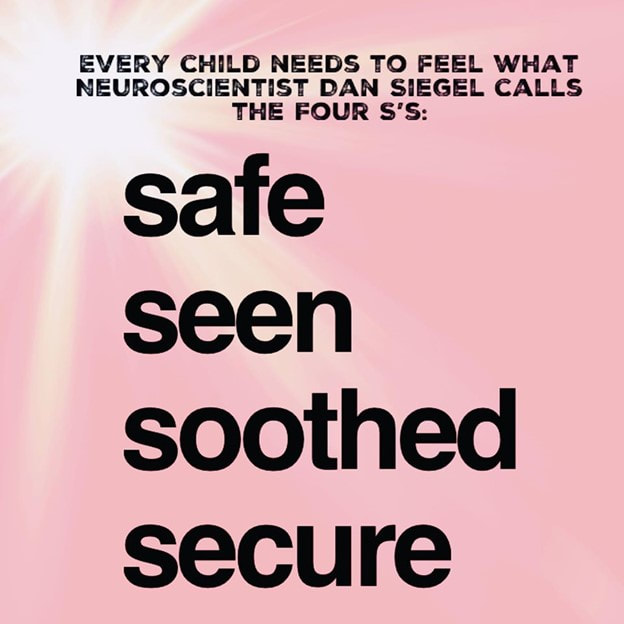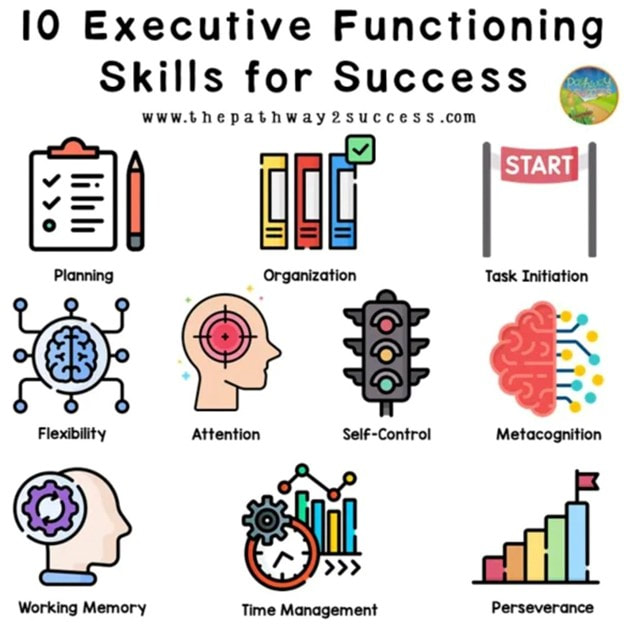|
All behavior is communication. When someone is behaving in a way that is out of the ordinary, we often question why or ask, “what’s wrong with them?” Whether it is an adult or a child, all behavior is communication. What is it communicating? Normally the answer is an unmet need or an undeveloped skill. Let’s spend a few minutes examining those needs and skills. As humans, our most basic needs physically are food, water, shelter, and rest, while our most basic emotional need is to feel connected to other people. The acronym HALT is an easy way to remember these and to ask what someone (or you) might need. Additional needs include the need to have autonomy, certainty, and fairness. SCARF is a good acronym to remember these needs. Think about how you were feeling in March and April of 2020. With the start of the global pandemic and the lockdowns, there was so much uncertainty in our world. Our autonomy was curtailed by safety measures. It was harder to be in relationship with others when we couldn’t leave our homes or spend time with those we love. I love using the work of Drs. Tina Payne Bryson and Dan Siegel to think about relationships. Their book The Power of Showing Up about attachment provides a great guide for what we all need to feel secure in our relationships with others. While their graphic says, “every child needs…,” in reality, all humans need to feel safe, seen, and soothed in order to develop secure relationships with others. Take a few minutes to think about what makes you feel safe physically and emotionally? What does it mean to feel seen by others? How do you calm yourself in times of stress (soothed)? My hero Dr. Bruce Perry’s work focuses on trauma and how it changes the brain. He focused on ways to heal trauma, and it’s the same things that make us feel soothed – rhythmic repetitive motion. This could be walking, swinging, rocking, listening to music, jumping on a trampoline, coloring, journaling, painting, crocheting or knitting, or just being in nature. Were any of these things answers of how you calm your brain in times of stress? When we think about undeveloped skills (or underdeveloped skills), normally these skills are those of executive function. These skills “live” in our prefrontal cortex, the last part of our brain to fully develop. New research shows this part of our brain is not fully developed until somewhere between age 25 and 30. This is the part of our brain that undergoes massive redevelopment during adolescence, which explains a lot about adolescent behavior! One of my favorite speakers about executive function skills is Dr. Ann-Louise Lockhart. Here’s a video of her talking about these skills: https://www.youtube.com/watch?v=1yBk326GRXo
We all have times when we have unmet needs. The best way for all of us to approach each other is with curiosity and not judgment.
0 Comments
Financial poverty is rampant in our community. 43% of children in USD 383 qualify for free or reduced lunch, indicating their families are struggling financially. The stress of poverty has a significant impact on a child’s ability to learn as well as on their physical health. According to the Centers for Disease Control, poverty is one of the greatest causes of disparity and inequity in health. The toxic stress of poverty has been found to be associated with deleterious outcomes in learning, behavior, physical and mental health (National Scientific Council on the Developing Child, 2007). Poverty and isolation are known to be a major factor in negative health outcomes. Thrive! places an emphasis on social health in a way no other agency can, as our focus is building support groups through intentional friendship and trained mentors. Leaders (those moving from poverty) develop goals to pursue their own financial and health outcomes and then are provided the support needed to make these goals a reality. The changes affected by our Leaders will impact their families for generations. Ultimately, our vision is to end generational poverty.
Why does poverty have such an impact on learning and health? Our brains are designed to keep us alive. Under times of stress, our midbrain takes over and disengages the cortex, the thinking and learning part of our brain. It pulls a fire alarm for our bodies by releasing adrenaline and cortisol to prepare us to flight or flee. Blood rushes to our major muscle groups, our heart rate increases, digestion stops as we direct our energy elsewhere, our immune system ramps up in case our body is damaged in a fight. As Dr. Nadine Burke Harris says, this is great if you are in the woods and facing a bear. But what happens when the bear lives in your house? What happens when you live in a world focused entirely on survival? (https://www.youtube.com/watch?v=95ovIJ3dsNk ) An excellent video I use to describe this when making presentations, particularly to educators, is called Learning Brain vs. Survival Brain (https://www.youtube.com/watch?v=KoqaUANGvpA). In this video, Jacob Ham, PhD, describes how difficult it is to process new information in survival brain. Please take a few minutes to watch. Imagine how hard it must be to take in new information with your brain in survival mode. Dr. Bruce Perry (my hero!) talks here about how stress impacts learning and behavior (https://www.youtube.com/watch?v=COMwI2akgqM ). As you may know, science is my educational background. Because of this, I’m fascinated by the science around toxic stress and trauma, as I’ve spent my career working in fields with individuals experiencing both. One topic I always found fascinating in my biology classes was aging and the role telomeres play. Have you heard of telomeres? They are caps on the end of our chromosomes (the big bundles of DNA where our genes are encoded) designed to keep our DNA from unraveling. Just like an aglet on a shoelace, telomeres keep our DNA from fraying. (I know the word aglet from watching so much Phineas and Ferb with Kaiden when he was younger! https://www.youtube.com/watch?v=VwizJNvl62U ). The shorter your telomeres, the more aged your cell becomes. Just like you could replace the aglet on a shoelace, our body has a protein called telomerase that can add telomeres back to the ends of our cells like glue. Do you know what inhibits telomerase and keeps it from working? High levels of stress hormones. Dr. Elizabeth Blackburn has done significant research on the role telomeres play in cellular aging (https://www.youtube.com/watch?v=2wseM6wWd74 ). She wrote a book with Elissa Epsel called The Telomere Effect that details scientific research around what shortens our telomeres and what can cause them to grow. What has been shown scientifically to grow telomeres and keep our cells healthy longer? Healthy relationships top the list. The list also includes mindfulness activities, journaling, exercise, and good sleep. Thrive focuses on each of these areas to help reduce stress for our Leaders and youth and improve their physical and mental health. Science matters! And so does ending the toxic stress of poverty. Jayme Morris-Hardeman, Executive Director When I learned about Thrive! I was moved by its mission of helping people help themselves and wanted to be involved. I regularly contribute to Heifer International and Thrive! echoes the same philosophy of empowering people in order to help them to better their situations. I also love that Thrive! is a local organization devoted to helping people in the Manhattan community. The following are some of the reasons I am proud to be a part of Thrive!
I believe in Thrives mission. The mission of Thrive! is to help reduce poverty by building skills and relationships that strengthen families and individuals. This model of helping people help themselves really speaks to me and I feel it’s so much more effective and beneficial than merely providing financial assistance. I’ve heard it said that Thrive! gives a hand up, not a hand out. The skills learned and connections made by the Leaders of the families involved in Thrive! can be utilized in so many aspects of their lives and can truly help them succeed I want to be more involved in the community. I appreciate that Thrive! is a local organization and that 100% of funds go to helping the local community rather than a substantial portion going for advertising or to pay for administrative costs to an umbrella entity. I’ll continue to contribute to national and world-wide charities, but there’s a different level of satisfaction from knowing your efforts will directly affect people where you live. I want to be more service-minded. To quote Audrey Hepburn, “You have two hands. One to help yourself, the second to help others.” I’ve been blessed in so many ways and want to give back. I believe helping others help themselves can have a positive effect that goes beyond the original purpose of bettering someone’s financial situation. There’s a magic that happens when a person succeeds in something and the confidence gained by the success can spill over into other aspects of their life and result in a domino effect that spurs other successes. I was inspired by the stories of Thrive participants It’s been wonderful to hear about some of the successes of Thrive! Leaders. I especially love the story of the single mom who recently enrolled in Highland Community College to begin her degree in accounting and how the Thrive! family helped provide her with school supplies, assisted her with enrollment, and drove her to her first day of class and took the obligatory 1st day of school photo! I want to help make a difference. Finally, my underlying reason for joining Thrive! is a desire to help make a contribution. The problems in the world today can seem overwhelming, but even small contributions can make an impact. We are all here for a purpose, and that is to make a difference. Sally Garvin |
To follow this blog, use your RSS Feed Reader and search: thriveflinthills.com/2/feed
|
 RSS Feed
RSS Feed





